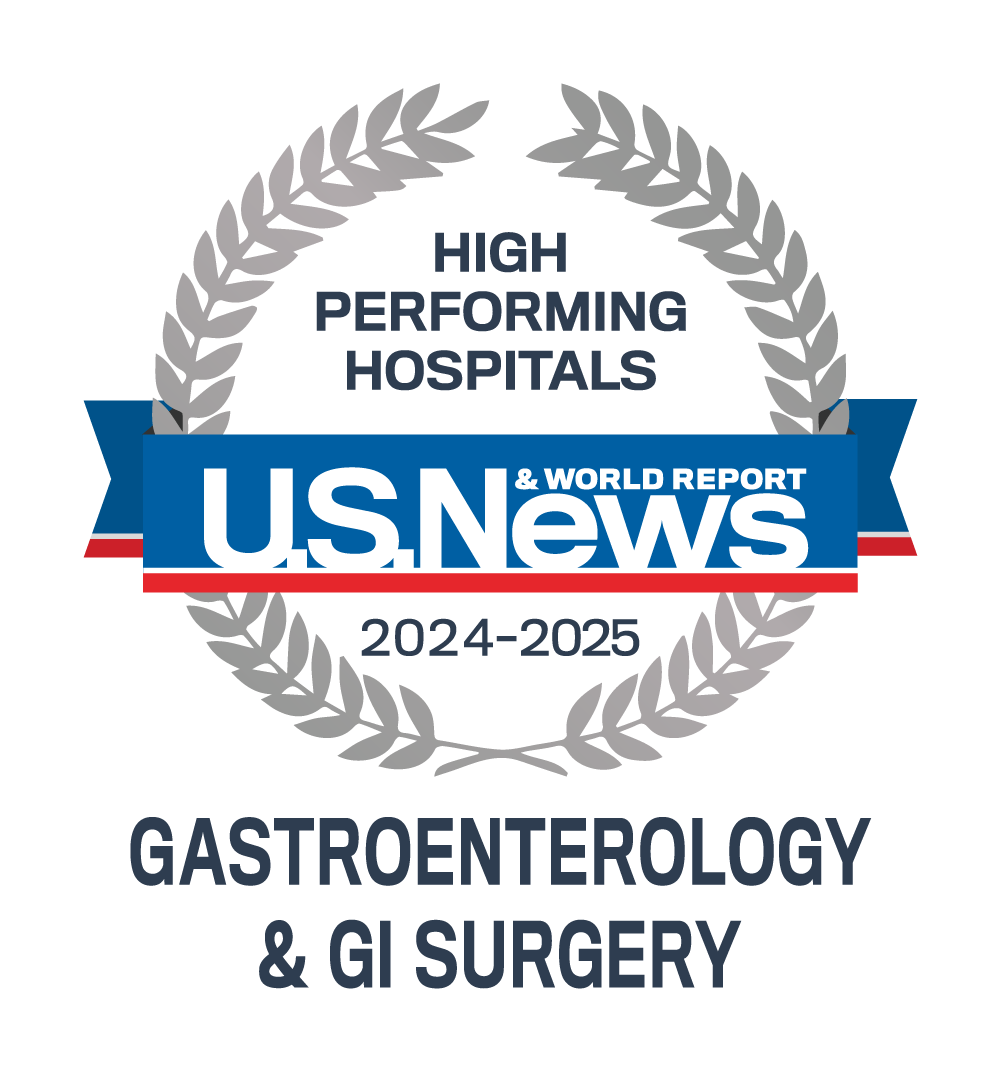Esophageal cancer is a rare disease that occurs when cells in the esophagus grow out of control. Your esophagus is a thin, muscular tube that passes food and liquids from your throat to your stomach. People with this type of cancer have abnormal cell growth in the esophagus, and cancer may spread to other tissues and organs.
Esophageal cancer is rare in the United States. However, anyone who smokes, drinks excessive amounts of alcohol, or has uncontrolled acid reflux can be at risk for the disease. People with esophagus cancer work with a team of doctors and specialists to navigate treatment and the next steps for care.
 Esophageal Cancer at UK Markey Cancer Center
Esophageal Cancer at UK Markey Cancer Center
Markey's gastrointestinal cancer team provides expert consultation and ongoing care for patients with cancers of the colon and rectum. We offer state-of-the-art gastrointestinal cancer screening and diagnoses as well as the latest advances in surgical, radiation and chemotherapeutic interventions. Our team has special expertise in extensive radical surgery on the esophagus.
Markey has provided state-of-the-art cancer care since 1983, and we are proud to be the only cancer center in Kentucky designated by the National Cancer Institute. Since 2017, Markey Cancer Center has been nationally recognized as a top 50 cancer center by U.S. News & World Report.
Most people do not experience esophageal cancer symptoms in the early stages of the disease. But as the cancer progresses, you may have other signs of esophageal cancer, including:
- Chest pain
- Chronic cough
- Difficulty swallowing
- Hoarseness
- Indigestion
- Vomiting
- Weight loss
Five-year relative survival rates are almost 50 percent for localized esophageal cancer. For more information on esophageal cancer survival rates, visit the American Cancer Society website.
You can lower your risk of cancer by taking steps to build a healthy lifestyle. Here are some ways you can lower your risk for this disease, as well as improve your overall basic health:
- Avoid using tobacco products. Tobacco has been tied to multiple cancers, and it is responsible for 90 percent of lung cancer deaths.
- Stay physically active. Your physical activity is related to risk for colon and breast cancer. Excess weight gained from inactivity increases the risk of multiple cancers.
- Limit alcohol consumption. It is important to be mindful of how much alcohol you drink. Alcohol intake, even in moderate amounts, can increase the risk for colon, breast, esophageal, and oropharyngeal cancer.
- Learn about screenings. Your primary care doctor can recommend appropriate cancer screenings based on your age, personal risk and family history.
Researchers don’t know the exact cause of most esophageal cancers. However, there are factors that increase your risk. These include:
- Achalasia. This is a rare condition that causes food or liquid to collect in the lower esophagus. Over time, the cells in the area become irritated. This increases risk of developing esophageal cancer in about 15 to 20 years.
- Age. More esophageal cancer cases are found in people older than age 55.
- Barret’s esophagus. People with this condition are at higher risk to develop adenocarcinoma of the esophagus.
- Drinking alcohol. People who drink excess alcohol have a higher chance of esophageal cancer.
- Gastroesophageal reflux disease (GERD). People with GERD have a slightly increased risk of getting adenocarcinoma of the esophagus.
- History of other cancers. People with lung cancer, mouth cancer and throat cancer have an increased risk of squamous cell carcinoma, likely because of a history of smoking.
- Obesity. People who are overweight or obese have a higher chance of adenocarcinoma of the esophagus, which may be an indirect result of obesity increasing the risk of GERD.
- Plummer-Vinson syndrome. People with this rare syndrome have esophageal webs that lead to chronic irritation and difficulty swallowing. About 1 in 10 people with Plummer-Vinson syndrome will develop squamous cell cancer of the esophagus.
- Poor diet. Some initial studies link diets high in processed meat and low in fruits and vegetables to esophageal cancer.
- Sex. Men are more likely to get esophageal cancer than women.
- Smoking. Using tobacco products is a major risk factor for esophageal cancer. People who smoke a pack of cigarettes daily have twice the chance of getting adenocarcinoma of the esophagus as someone who does not smoke. Risk is further increased in people who both drink alcohol and smoke.
- Tylosis. This is a rare disease that causes small growths to develop in the esophagus. People with tylosis have a high risk of getting squamous cell cancer of the esophagus.
- For your first visit, you will be directed to the head, neck & respiratory clinic on the second floor of the Ben Roach Cancer Care Facility. Open Google Maps.
- You can register at the front desk or registration area, where a Markey team member will help guide you through your appointment.
- Several parking options are available to patients of Markey Cancer Center.
- Please remember to bring your patient packet with the completed forms. These items will help your doctor learn more about your case and determine the best plan for your care.
- To meet our patient needs, UK HealthCare accepts many forms of insurance.
Clinical trials are research studies aimed at evaluating medical, surgical or behavioral interventions to determine if a new treatment is safe and effective. At Markey, we are advancing cancer care and research to prevent, detect and treat. As a patient at Markey, you have a team of people looking at your individual case, applying the most recent cancer knowledge to give you the best chance of survival.
Markey has more open clinical trials than any other cancer center in the region, giving you access to some of the most advanced options available. Learn more about ongoing clinical trials for treating esophageal cancer below.


















